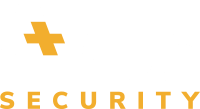Rules for CCTV in the Workplace: What You need to Know
03 July 2024

In commercial buildings, the use of CCTV has become increasingly common as a means to enhance security, monitor activities and ensure the safety of employees and assets.
However, it’s essential for business owners and managers in the UK to understand the legal framework governing the use of CCTV in the workplace to ensure compliance and protect the rights of individuals.
Here’s what you need to know:
Understanding the Legal Framework
In the UK, the use of CCTV security systems in the workplace is primarily regulated by the Data Protection Act 2018 (DPA) and the General Data Protection Regulation (GDPR). These regulations set, strict guidelines on how personal data, including CCTV footage, should be handled. The Information Commissioner’s Office (ICO) also provides detailed guidance on the use of surveillance cameras in public and private spaces.
Legitimate Reasons for CCTV
Employers must have legitimate reasons for UK CCTV installations in the workplace.
Common justifications include:
- Security
Protecting property and assets from theft or damage.
- Health and Safety
Ensuring the safety of employees and visitors.
- Monitoring Work Performance
Assessing employee performance through monitored CCTV must be done transparently and fairly.
- Preventing Crime
Deterring and investigating criminal activities.
Conducting a Data Protection Impact Assessment (DPIA)
Before CCTV installation, businesses are required to conduct a Data Protection Impact Assessment (DPIA). This assessment helps identify and minimise data protection risks associated with surveillance.
The DPIA should cover:
- The purpose of CCTV usage
- The necessity and proportionality of the surveillance
- The potential impact on individuals’ privacy
- Measures to mitigate identified risks
Informing Employees and Visitors
Transparency is crucial when it comes to CCTV usage. Employers must inform employees and visitors about the presence of cameras and the purposes for which they are being used.
This can be achieved through:
- Signage
Clear and visible signs indicating CCTV surveillance.
- Policy Documents
Detailed CCTV policies included in employee handbooks or displayed prominently in the workplace.
- Privacy Notices
Information on how CCTV footage will be used, stored, and shared, typically included in a company’s privacy policy.
Ensuring Proportionality and Minimising Intrusiveness
The use of CCTV systems for businesses must be proportionate to the problem it aims to address.
This means:
- Limited Coverage
Avoiding private spaces such as restrooms and changing rooms.
- Selective Use
Using CCTV selectively and not as a blanket measure across all areas.
- Restricted Access
Ensuring that only authorised personnel have access to CCTV footage.
Data Storage and Security
Handling CCTV footage responsibly is crucial to maintain data protection standards.
Key considerations include:
- Retention Periods
Footage should not be kept for longer than necessary. The ICO recommends a retention period of 30 days unless there is a specific reason to keep it longer.
- Secure Storage
CCTV footage must be stored securely to prevent unauthorised access, using encryption and other security measures.
- Access Controls
Implementing strict access controls to ensure that only authorised individuals can view the footage.
Individuals’ Rights
Employees and other individuals have rights regarding their personal data, this includes CCTV footage.
These rights include:
Right to Access
Individuals can request access to CCTV footage that includes them.
Right to Erase
Under certain circumstances, individuals can request the deletion of their data.
Right to Object
Individuals can object to the processing of their data if it causes unwarranted harm or distress.
Choosing the Right Security Partner
When selecting a security partner for your CCTV needs, it’s important to choose a company that adheres to the highest standards. A-Plus Security is proud to be an NSI Gold Approved company, which means we meet the industry's rigorous standards for security system installation and maintenance - ensuring you receive the best possible service
Installing and using CCTV in the workplace comes with significant benefits and responsibilities. By understanding and complying with the legal requirements, conducting thorough impact assessments and ensuring transparency and proportionality, businesses can effectively use CCTV to enhance security while respecting the privacy rights of their employees and visitors – helping to create safer spaces and foster trust within the workplace.
A-Plus Security are a NSI Gold Approved company, who provide a range of security consultancy, bespoke design, installation and maintenance services to help you establish a robust and future-ready security position for your premises.
Contact us here or call us on 01702 293157 for a consultation to review and enhance your current security systems.
